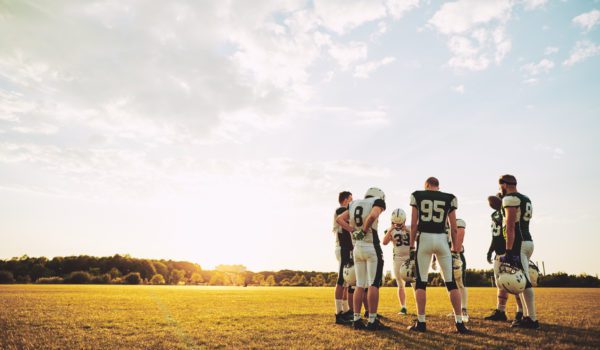Kennedy v. Bremerton School District, 142 S. Ct. 2407 (June 27, 2022)
In the most significant case to address the school/religion balance in at least two decades, a six-member majority of the U.S. Supreme Court, in Kennedy v. Bremerton Sch. Dist., held that the Free Exercise and Free Speech Clauses of the First Amendment protected high school football coach Joseph Kennedy’s personal religious observance after a football game from restriction by his employer, the Bremerton School District.
Mr. Kennedy engaged in what the Supreme Court found to be “a sincerely motivated religious exercise involving giving ‘thanks through prayer’ briefly ‘on the playing field’ at the conclusion of each game he coaches.” But the school district, citing concerns about violating the First Amendment’s Establishment Clause, as interpreted by the Supreme Court’s “endorsement” analysis in Lemon v. Kurtzman, 403 U.S. 602 (1971), suspended Mr. Kennedy.
In a majority opinion written by Justice Neil Gorsuch, the Supreme Court held that the suspension violated Mr. Kennedy’s rights under the Free Exercise and Free Speech Clauses. The Court explained that unlike earlier “school prayer” cases like Engel v. Vitale, 370 U.S. 421 (1962) and School District of Abington Township v. Schempp, 374 U.S. 203 (1963), “[t]he contested exercise here does not involve leading prayers with the team; the District disciplined Mr. Kennedy only for his decision to persist in praying quietly without his students after three games in October 2015.” Mr. Kennedy’s prayers “were not publicly broadcast or recited to a captive audience,” students “were not required or expected to participate,” and the prayers were made after the games ended, when Mr. Kennedy was no longer acting within the course and scope of his employment. In short, “[t]here is no indication in the record that anyone expressed any coercion concerns to the District about the quiet, postgame prayers that Mr. Kennedy asked to continue and that led to his suspension.”
In the absence of such coercion, the school district went too far. As the majority put it, “[w]e are aware of no historically sound understanding of the Establishment Clause that begins to ‘make it necessary for government to be hostile to religion’ in this way.” Erroneously relying on the “Lemon test,” the district’s actions “rested on a mistaken view that it had a duty to ferret out and suppress religious observances even as it allows comparable secular speech.” The Constitution, Justice Gorsuch concluded, “neither mandates nor tolerates that kind of discrimination.”
Justices Clarence Thomas and Samuel Alito filed concurring opinions. Justice Sonia Sotomayor filed a dissenting opinion, in which Justices Stephen Breyer and Elena Kagan joined. The dissent criticized the majority for giving “almost exclusive attention” to the Free Exercise Clause’s protection of individual religious exercise, while “giving short shrift” to the Establishment Clause’s prohibition on state establishment of religion. The dissent also faulted the majority for “overrul[ing]” Lemon v. Kurtzman, which “calls into question decades of subsequent precedents.”
Key Takeaways:
- While schools may not absolutely ban religious speech based on the Establishment Clause any longer, and the “Lemon test” appears to be overruled, context still matters. A short silent prayer by a teacher, even within the scope of their duties, likely falls within Kennedy v. Bremerton School District, as does non-coercive religious speech.
- Religious activity in mandatory or official school events, such as prayer at a graduation ceremony, in class, or over the speaker at a football game, will still likely run afoul of the Establishment Clause based on the coercive nature.
- The Court also reiterated that government speech occurs only when public employees speak within the scope of their employment duties, noting that Mr. Joseph Kennedy’s speech was made as a “private” citizen because his prayers did not result from his responsibilities as a coach.
- Kennedy suggests that presumptively acceptable religious activity in voluntary public-school programs (e.g., “release time” programs for off-campus religious instruction during school hours upon parental consent) should not violate the Establishment Clause.
- School policies, as written or as applied, may not exclusively target religious exercise. According to the Court, the school violated Mr. Kennedy’s constitutional interests by targeting his after-game prayer while not applying a similar standard to other coaching staff for engaging in personal, secular activities following the games, such as visiting with friends or making a personal phone call.
Explore the full wrap-up and analysis from Frost Brown Todd’s Appellate practice group on the most consequential rulings during the 2021 U.S. Supreme Court term for businesses and industries.

